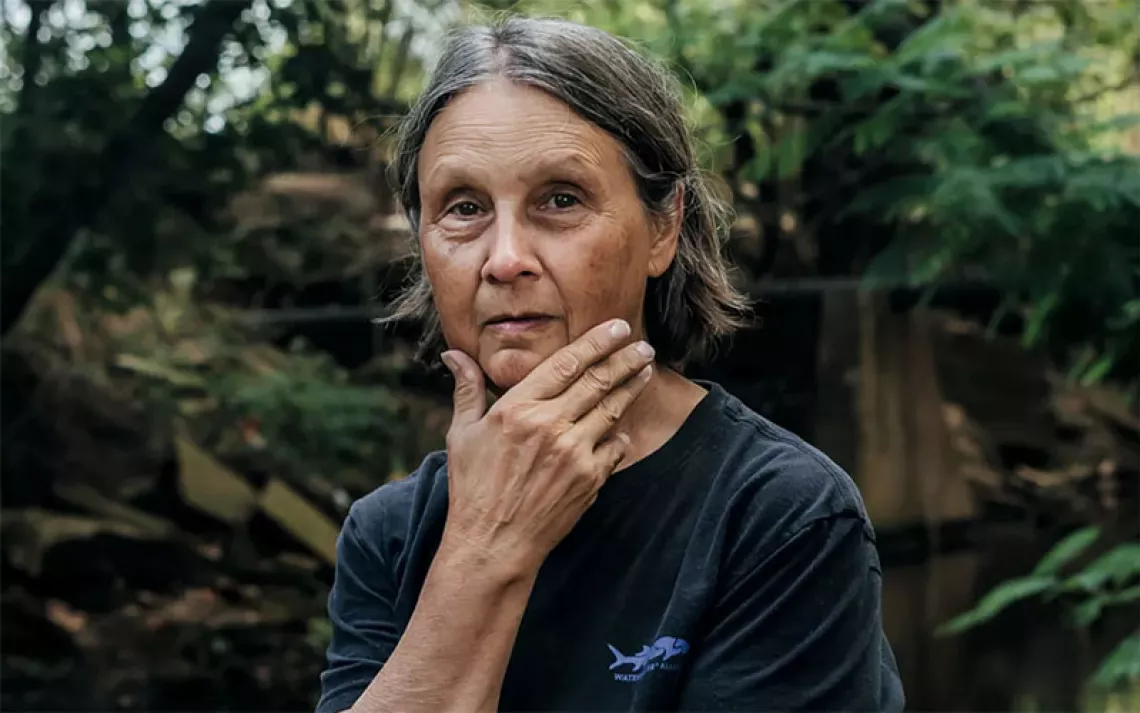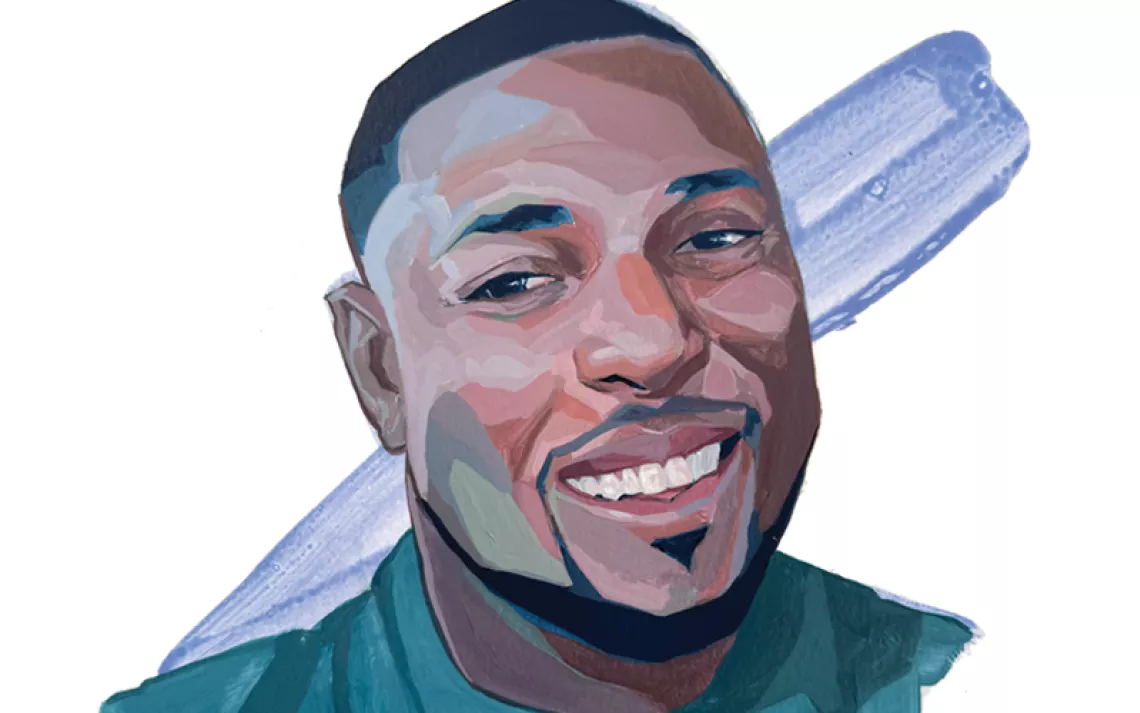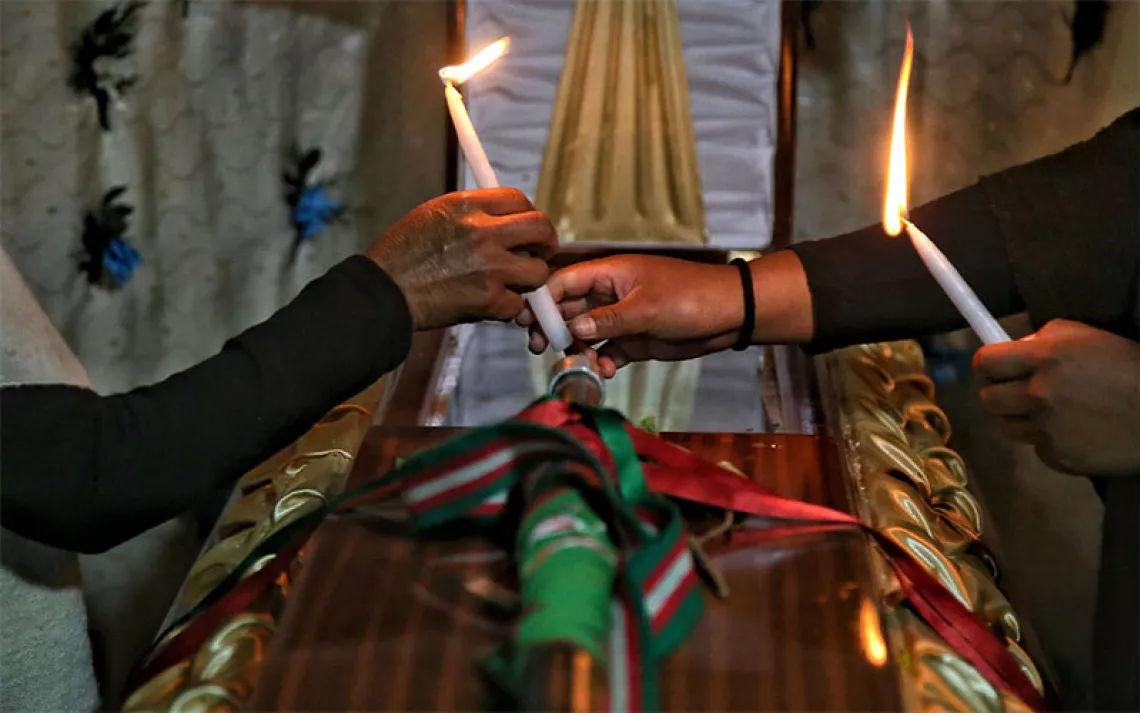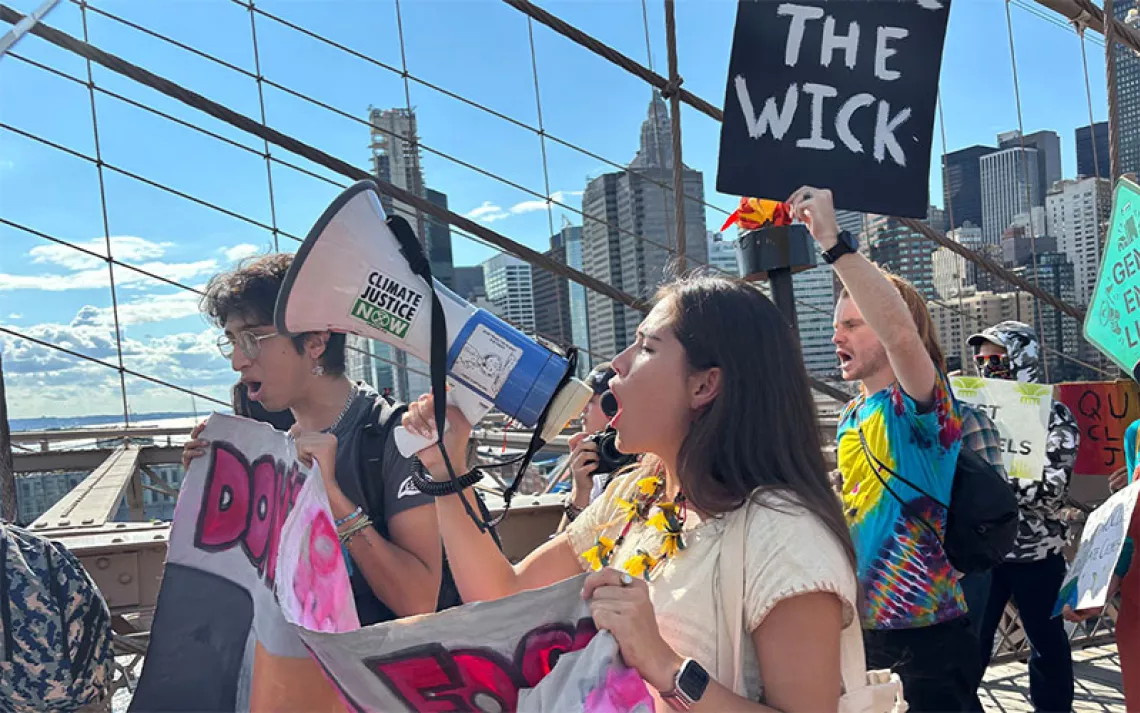Clean Energy Organizers Just Need a Little Help From Their Friends
This Texas advocate lit up the fight for clean energy with coalition building
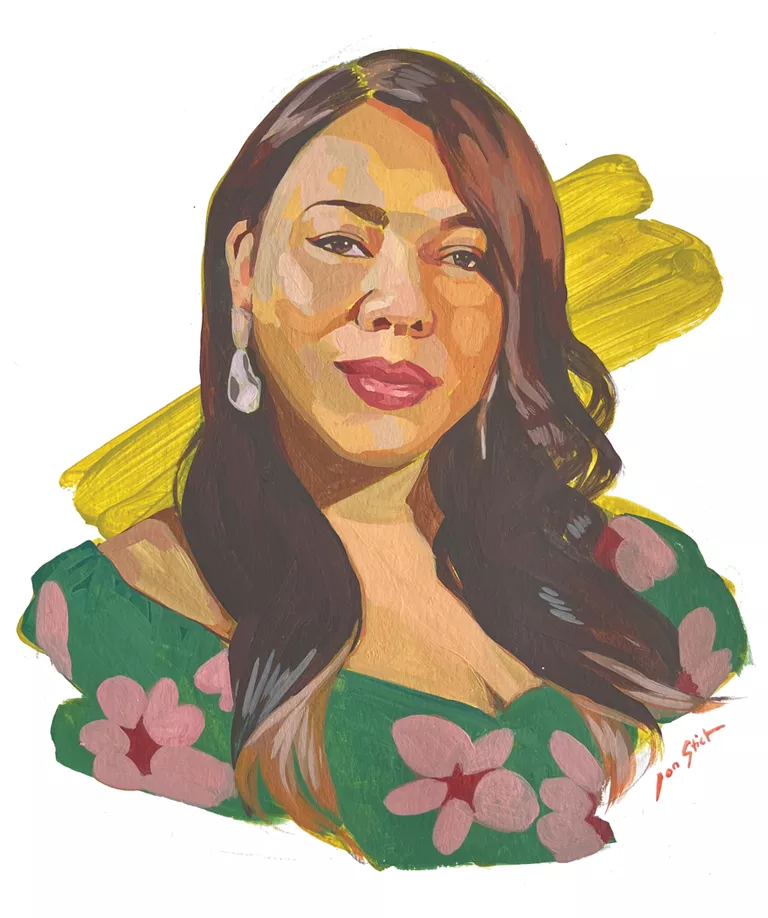
Agripina Gomez, clean energy organizer, Texas | Illustration By Jon Stich
Twenty-three years ago, my family emigrated from Mexico to Port Isabel, Texas. We were broken up by US Immigration and Customs Enforcement in 2016. The fact that I'm a DACA [Deferred Action for Childhood Arrivals] recipient saved me; otherwise, I would have been separated from my five-year-old son.
I didn't know anything about organizing at the time, but then I saw a flyer from a local labor rights organization that said, "Come join us for a community meeting about knowing your rights." One of the main things I learned in my first meeting was that we shouldn't let ICE come into our homes without a warrant. After seeing so many injustices, especially my family being taken, I decided to join the movement to make sure every family in my community learned about their rights.
I kept going to different meetings, and then I started organizing, developing committees all over Cameron County. We made sure people participated in the census, and we got people out to vote. My community became like my family. I would go to their houses to have meetings, where we'd discuss new infrastructure projects, how to vote, and how to work with community leaders. I put myself out there to defend these people and to organize on the border, because we have been marginalized for way too long.
Through my advocacy work, I learned about the labor organization's coalition partners, including the Sierra Club. So when I saw that the Sierra Club was looking for a bilingual organizer in Brownsville, I thought, "That's me!"
When I started as a clean energy organizer in July 2022, there was a big issue with the local public utility in Brownsville. They were supposed to build a new power plant, but it was never built. Yet they were still billing customers for service and construction. It was the height of summer, and a lot of people were getting electricity bills for $400, $600, even $1,000. Nobody could afford to pay, and people's electricity was getting disconnected. People were having to choose whether to put food on the table, pay for medicine, or pay their electric bills.
We had a rally outside the utility board. We would go to their meetings to testify. We would go to city council meetings. Some of the local activists have Facebook groups. I developed several groups to stay connected with the community and share updates on organizing efforts and calls to action. I used these connections to get stories from people who were affected. Many of them didn't want to attend the meetings because they're afraid to speak out, so I did it on their behalf. I submitted their comments to the board to show how real people are being hurt by their policies. And the Sierra Club's Lone Star Chapter took those stories to the state's public utility commission.
We asked the utility's board to fire the CEO, but he retired with benefits. We negotiated with the company, and they said they wouldn't shut off the electricity of families who couldn't afford their bill. They agreed to not charge disconnection fees. We also got them to lower their electricity rates by 22 percent. And right now, they're trying to figure out how to give $29 million back to the community.
This is the reason why I do all the work that I do. There are a lot of families here in my community fighting the same issues. So when I tell my story, they understand me, and I understand them.
 The Magazine of The Sierra Club
The Magazine of The Sierra Club
